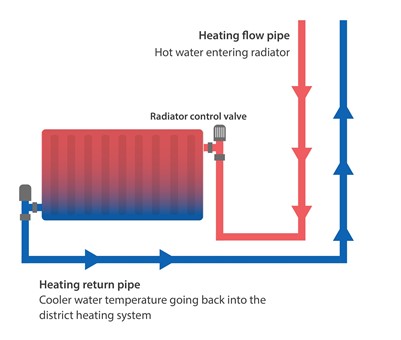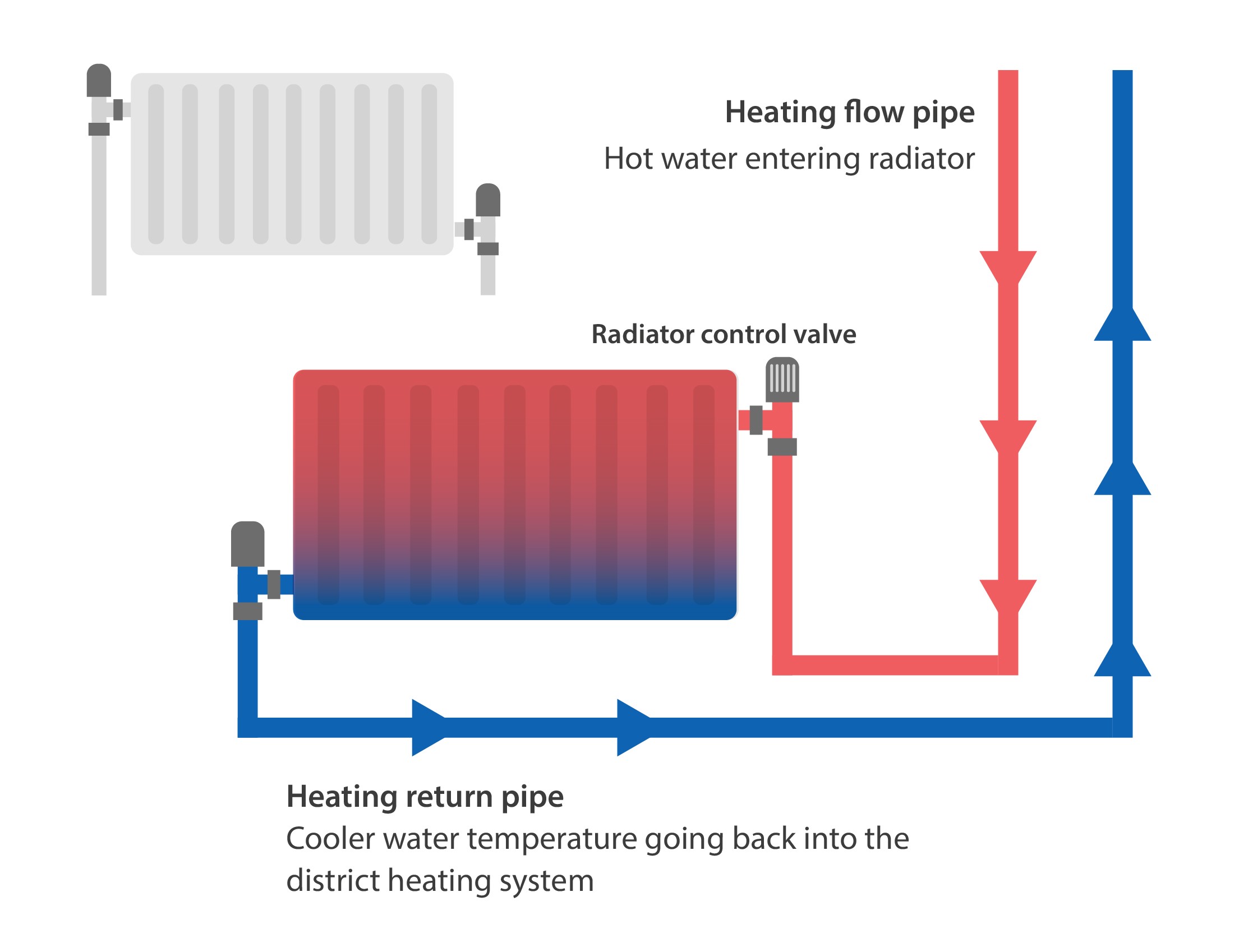We’ve recently received some queries from residents about the Duffryn heating system.
The information below explains how the heating system works and answers some questions we’ve received.
If you have a question about the heating system that isn’t covered here, please get in touch with us and we’ll do all we can to help.
enquiries@newportcityhomes.com / 01633 381 111.
Overview of Duffryn heating system
Most properties in Duffryn are heated by an award-winning biomass boiler which meets the Government’s zero carbon standard and provides hot water through a district heating system.
The Duffryn estate was designed and built to use a district heating system with properties constructed in terraces to allow pipework to heat each property.
This ensures the system is not only sustainable but is also effective, efficient and provides value for money.
The boiler and system is operated by Newport City Homes (NCH).
Monitoring the system
To ensure the system works efficiently, it’s constantly monitored to make sure it supplies 970 homes and a local primary school with heating and hot water every day.
Average heating and hot water costs in Duffryn
This monitoring, which is independently verified, shows the average annual heating cost for a one bedroom flat in Duffryn is £378.47.
The average annual heating cost for a three bedroom house in the area is £521.65 - which is £78.35 less than the South Wales average for a property of this type.
As there is no standing charge, Duffryn residents only pay for the heating and hot water they use.
There has been no annual price increase for Duffryn residents since 2014.
Cost per kWh for NCH residents and spreading winter costs
NCH residents pay 0.09515p per kWh or 9.515p per kWh. A small percentage of resident’s rent contributes to the system’s 24/7 maintenance and repairs service.
Payment is made via a Switch2 pay-as-you go metre system.
We advise residents to pay a set amount each month or top up through the summer. This means their winter payment will be lower as costs for increased usage would have been spread out over a longer period of time.
This approach is common practice for utility bills.
Cost per kWh for NCH leaseholders
NCH leaseholders pay 0.13939p per kWh or 13.939p per kWh. This cost is higher because private home owners pay for the systems’ 24/7 maintenance and repairs service.
Payment is made via regular billing.
Comparing kWh between a district heating system and natural gas
The district heating system does not work in the same way as a traditional natural gas fired system. This makes it very difficult to compare charges per kWh between the two – it’s like comparing apples and pears.
The charge per kWh is higher at Duffryn than many gas providers. However, the Duffryn system produces instant heat / hot water per kWh and produces it much quicker than a gas system would.
For example, this means you use less kWh units in the district system than you would to achieve the same energy output with a traditional gas fired heating system.
So even though the kWh charge is more at Duffryn than some gas provider tariffs, overall bills on the estate are lower than the south Wales average.
There are no standing charges for Duffryn heating system users
In addition to this, there is no standing charge for the Duffryn system, so users only get charged for the heating / hot water they use.
(A standing charge is a standard charge incurred by customers of most utility providers and has to be paid whether you use their services or not.
These charges cover the costs of providing the energy and vary greatly between suppliers.
As an example, the current average daily standing charge for pay-payment gas services for the ‘Big Six’ as of September 2020 (according to money.co.uk) was 34.718p which amounts to £126.72 per year.
Duffryn residents do not incur these charges.
Maintenance and repairs
As part of our ongoing maintenance, repairs and improvement programme, we installed new pipework throughout the system as well as new heat interface units (HIUs) and installed new radiators in all Newport City Homes owned properties in 2018.
It is not our responsibility to upgrade the heating systems (eg, radiators) in private residents’ homes in the same way gas suppliers would not pay for a new boiler system to be installed in their customers’ homes.
When the biomass system was introduced, private home owners had the option to upgrade their private heating systems at a discounted rate.
Radiators in NCH properties
The radiators in Duffryn have been designed to work differently to traditional radiators, meaning they are cooler at the bottom when the system is on.
We understand this is unusual, but we want to reassure residents this is how these particular type of radiators (which are known as ‘top bottom opposite end’ radiators) are designed to work.
Hot water enters through a pipe at the top of the radiator and stays there until it cools. No heat is wasted or moved back into the Duffryn system pipework.
So radiators that are cooler at the bottom are not broken or faulty.



Traditional radiators using gas central heating systems
Traditional radiators using a gas boiler constantly move hot water around a central heating system.
Hot water leaves the boiler and cools as it makes its way through the system.
This means enough hot water must be generated to heat the connecting pipework as well as radiators.
When it flows back to the boiler, the boiler reheats it. This process repeats for as long as the system is turned on.
Changing heating suppliers
NCH residents on the district heating system don’t have the option to change to a different system / supplier.
However, private homeowners can opt out if they want to.
If you’re having problems with your heating / hot water system
90% of the calls we receive about the Duffryn heating system relate to heating controls and misunderstanding about how the radiators and / or system works.
We receive very few follow up calls once we’ve worked with residents to show them how to programme their personal heating systems, adjust their radiator valves or explain that by building up credit on the pay as you go system throughout warmer months, winter bills will be lower.
If anyone would like to know more about how the district heating system works or you are concerned about your heating costs, you can call us on 01633 38111.
One of our colleagues will answer any questions you have or we can send an engineer to your home to investigate. These visits will be in line with the latest COVID-19 government guidance.
If you have any questions
We are aware of some inaccuracies about how the system works and the costs associated with heating and hot water within the Duffryn community.
If you have any questions which are not covered here, please get in touch with us.
We would rather residents speak to us so we can allay any concerns directly and explain more about your personal situation.